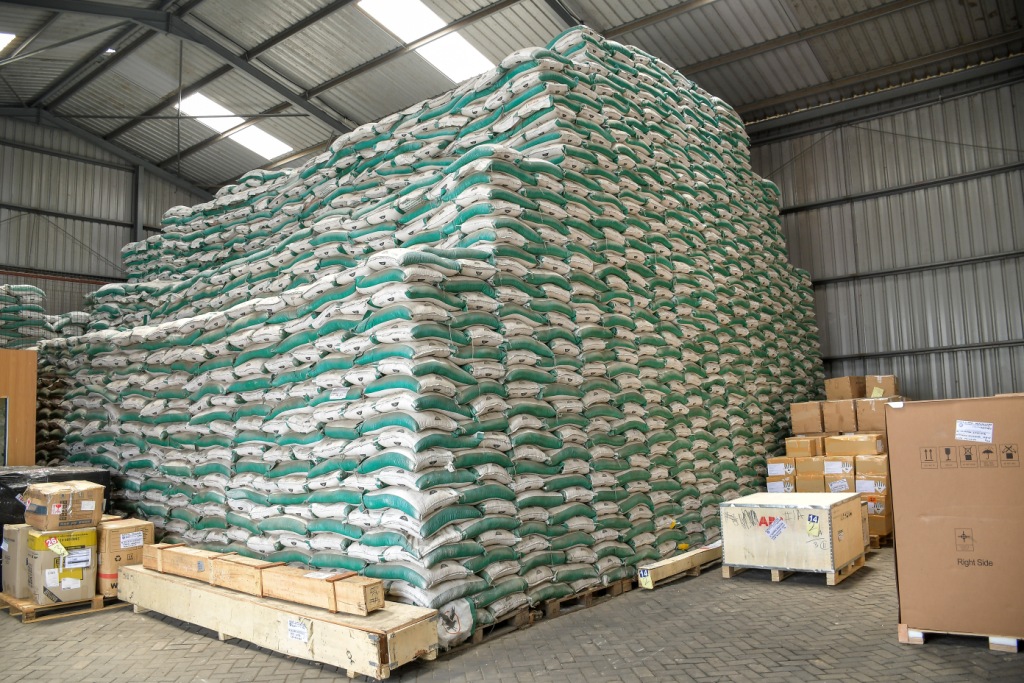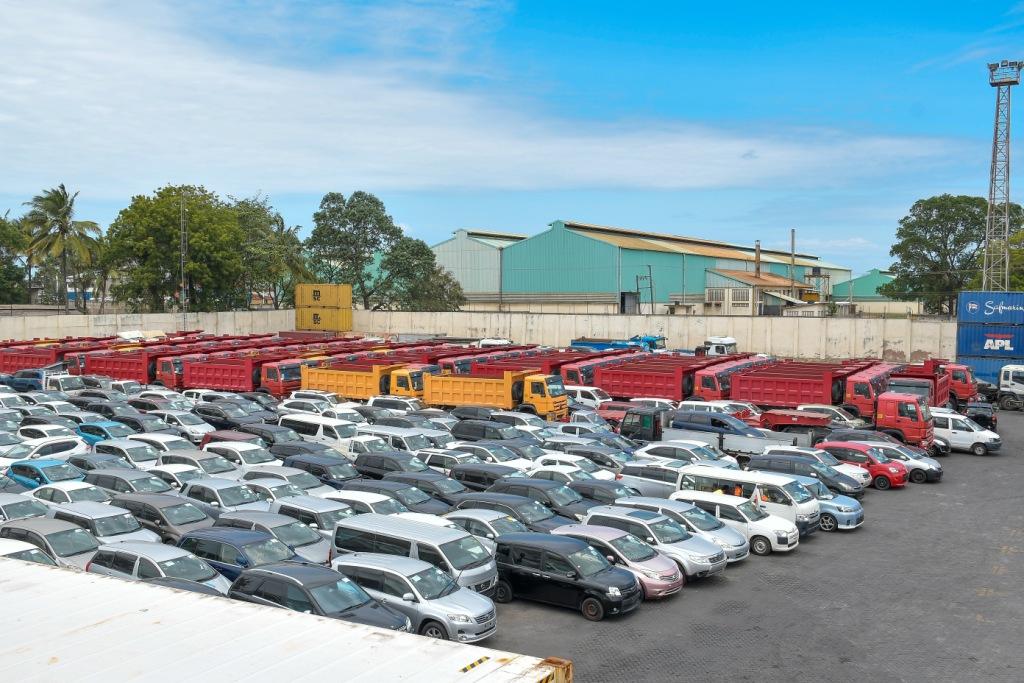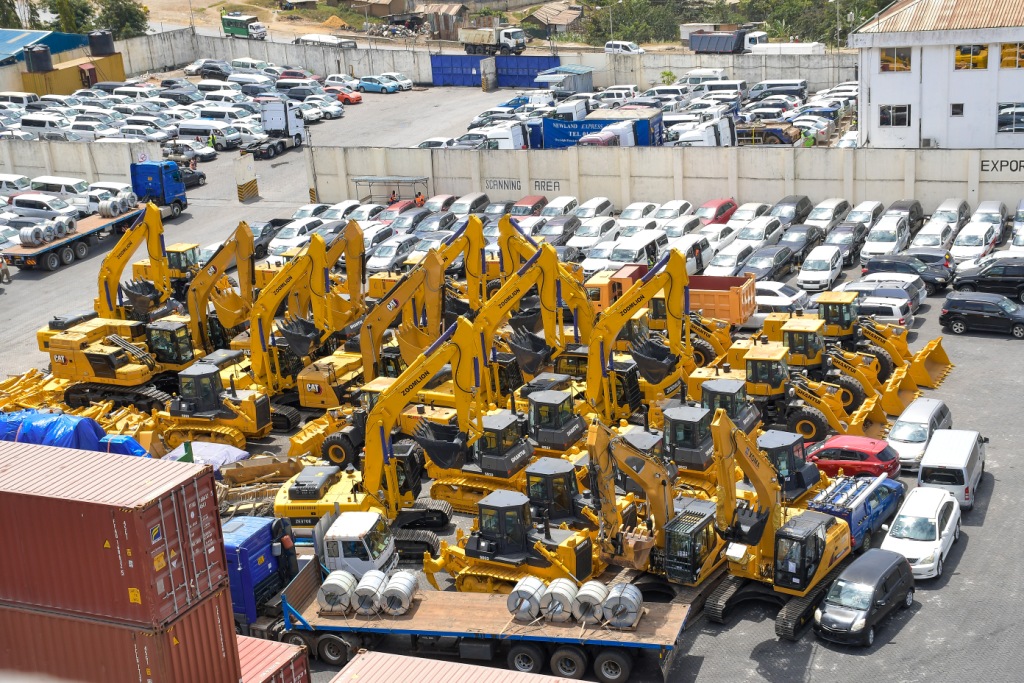- Miritini - Mombasa Nairobi Highway
- + 254713 939 989
- + 254 791 478 547
- sales@rlc.co.ke
EXPORTING AND IMPORTING CARGO
Important Information
To move cargo, a lot of parties are involved. This is why an importer or exporter approaches a company like Regional Logistics, to advise him/her on one point of entry. However sometimes things do not go as planned, in that case it is always good to know which party is responsible for what exactly.
KPA (Kenya Ports Authority): this organization runs the port of Mombasa and organizes the berthing and loading/offloading of vessels. Within its boundaries, all other parties operate to clear and deliver cargo either to a vessel (exports) or from a vessel (imports). Their counterparts in the airports are the airport authorities and handling companies. Apart from controlling all port operations, they have the right to charge storage and handling fees to importers/exporters especially if cargo is not moving through fast enough and elapses its free days. To avoid this, preparation of any logistics operation is required.
Customs (Kenya Revenue Authority): this government institute is linked to the respective Ministry of Finance and has the right to levy duties and taxes on cargo (mostly imports though few exports are taxed as well). Inevitably any cargo movement that comes into or exits a country has to involve the customs authorities. Apart from duties and taxes they can levy penalties for not complying with the extensive regulations or misdeclaring cargo or cargo values. As part of the government, their rulings are law hence to avoid an argument, it is better again to plan your import/export accordingly.
Container Freight Station: the container freight stations are private depots under customs control which are extensions of the port. As such they are allowed to transfer cargo from the port to their depot and charge client the handling and storage as per the KPA tariff. This has been allowed to decongest the port which has been facing challenges to cope with its growth. For Mombasa port, these CFS receive the cargo destined for the local market based on either the allocation per vessel by the port or as consigned on the shipping documents. A variant of these are the Inland Container Depots which are basically the same but then at destination, not from the port. Cargo moves under customs control to the inland container depot from where final clearance can take place. It is important to know that not all CFS and ICDs are operating to the same standard. so to ensure proper cargo handling, you should ensure your cargo is handled by a reputable CFS like Regional Logistics Centre (RLC) CFS.
Rift Valley Railways (RVR): RVR is the regional organization that manages both the railways and equipment in Uganda and Kenya. They are basically the sole provider of rail transport to the general importers/exporters contrary to road transport where there is a wide choice of transporters.
Shipping line: Shipping lines take care of ocean freight from port to port. Their counterparts in airfreight are of course the airlines. Of specific importance to importers and exporters is the issuance of the official shipping documents that are done by them: bill of lading for sea freight or airway bill. The original shipping documents are negotiable which means anyone holding them holds a title to their cargo. Therefore these documents have to be issued with care and handled responsibly.
Clearing agent: A clearing agent has a license which allows it to make declarations in the customs system and usually also transact with shipping lines and the port authorities. From this position, they are well placed to handle with all the above mentioned parties to enable movement of cargo. Because of the convenience of having one point of communication and the need for professionalism, large clearing agents will also handle the transportation element on your behalf with their own fleet or use reliable hauliers. By extension they can also book sea freight or airfreight on your behalf, or even pack/sort and distribute your goods.
STANDARD OPERATING PROCEDURES (SOP)
SOP Safety
Regional Logistics Centre CFS has come up with a set of rules which must be adhered to while at the facility.
Failure to observe these rules will result to safety violation and may lead to revocation of your privilege to access the facility.
The rules are as follows:
- All trucks must be registered with REGIONAL LOGISTICS CENTRE CFS.
- Must wear Safety Vest at all times.
- Must have closed toe shoe (no flip flops, sandals, etc.).
- Must have Hard Hat on if getting out of vehicle inside the container yard.
- Speed Limit is 10 km/h.
- Must wear seat belt while operating a vehicle.
- Cannot use cell phone, radio call or other mobile communication devices while vehicle is moving. This includes any type of iPod/phone ear piece being worn.
- No walking or driving in between container stacks or rows.
- Cannot leave vehicle running or unattended when out of view or more than 25 feet away.
- Do not drive, stand/walk under or touch any part including door handles of a suspended container.
- You are responsible to ensure that all container doors you have interacted with are properly latched and secured.
- Must look in the same direction you are traveling/moving.
- Slow down at intersections, blind spots and anytime your vision is obstructed.
- When passing vehicles at intersections speed limit is 5 mph.
- Maintain a safe distance from other vehicles, no tailgating.
- No driving through lanes or yard with container doors open or unsecured properly.
- Must come to a complete stop at all posted and painted stop signs.
- Machines have a right of way.
- Do not climb on any terminal equipment to communicate with operators (machine clerks, reach stackers).
- Must remain in truck while waiting for terminal equipment to mount or dismount your container.
- Must maintain your driver side window rolled down so you are able to hear horn from reach stacker.
- Only use designated restrooms.
- No unauthorized passengers (passengers must meet facility ID requirements) or pets/animals.
- Must comply with all requests given by terminal security personnel.
DOCUMENTATION REQUIREMENTS
- Original CFS Release Order from the shipping Agency/Line which will aid to facilitate cargo transfer from port to our terminal.
- Delivery Order from the shipping line/agency.
- Copy of customs entry.
- Copy of the Bill of Lading.
PLEASE NOTE:
No discrepancy in the documents is allowed.
All trucks delivering cargo from our terminal MUST be registered with us for cargo security purposes. This exercise is free.
DEADLINES
- Documents to be presented to us at least five days prior to arrival of the shipment. This is a measure aimed at avoiding incurring additional expenses, i.e. storage charges payable to Kenya Ports Authority (KPA), demurrage charges payable to the shipping line and warehouse charges payable to Kenya Revenue Authority (KRA).
- Containerized cargo should be cleared from the terminal within four days. However for Client nominated cargo, the terms of clearance are quite flexible.
- CFS charges are settled upon obtaining release from KRA, Kenya Bureau of Standards (KEBS), Kenya Plant Health Inspectorate Service (KEPHIS) and PORT HEALTH where applicable among others.
- On completion of all required procedures, gate pass is issued to the clearing agents allowing them to load the cargos for final delivery to the consignees.
Related Important Links
Vessel Registration, Seafarers Application, Vessel Inspection Application, Maritime Service Providers Licences, National Marine Spills Response Contingency Plan, Conventional Cargo Operations, Container Terminal Operations. Contact our office for more details on logistics related information or get in touch on our social handles for more
Regional Logistics Centre Ltd Team
With over 250 dedicated employees working in both Mombasa & Nairobi, Kenya, we strive to deliver operational excellence. We are also available 24 hours / 7 Days a week to answer any queries that may arise.
Follow us on Facebook
contacts
Mombasa Office
- Mombasa Nairobi Highway Miritini
- P.O Box 86317-80100 Mombasa,
- + 254713 939 989
- + 254 791 478 547
- sales@rlc.co.ke
Kampala Office
- Future Holding Bond W0431 ,
- Plot No. 3. Jinja Road Opp MTAC, Nakawa,
- Kampala, Uganda, East Africa.
- sales@rlc.co.ke
Nairobi Office
- Off Mombasa Road East Gate/Masai Road Opposite Police Post
- P.O Box 51879-00200 Nairobi
- + 254713 939 989
- + 254 791 478 547
- sales@rlc.co.ke



